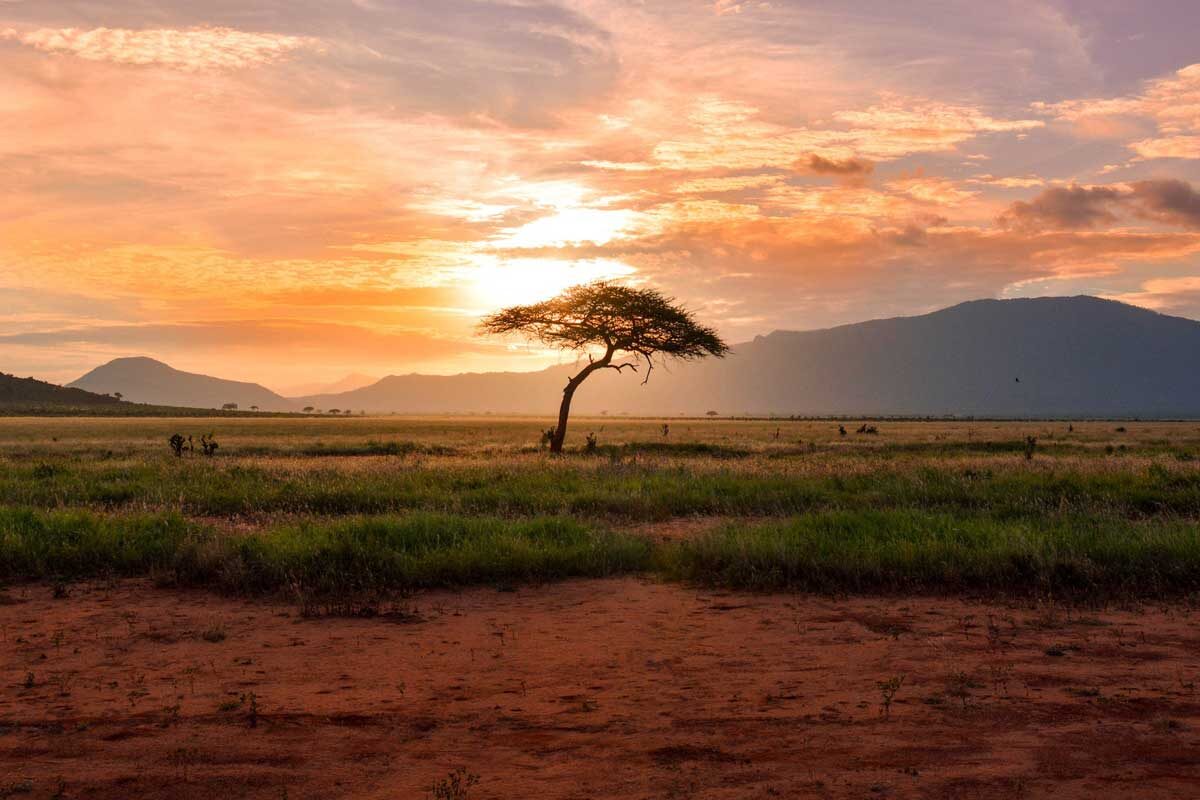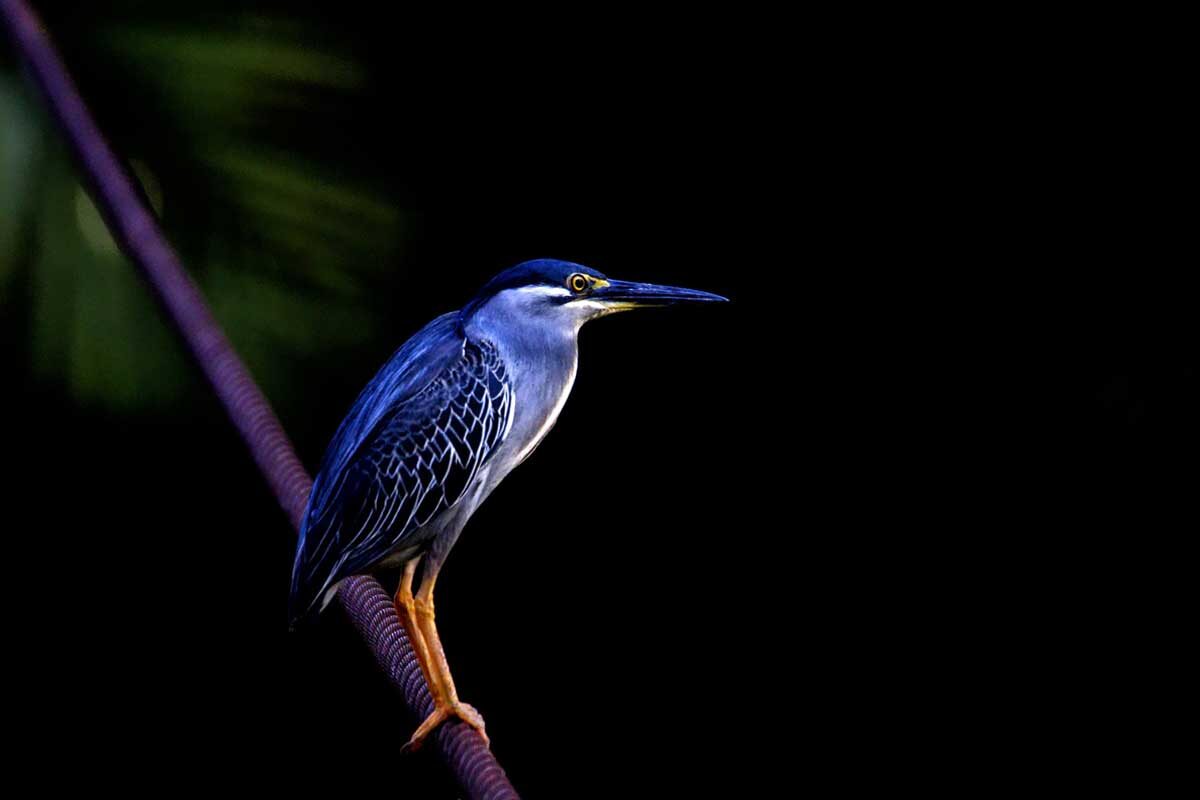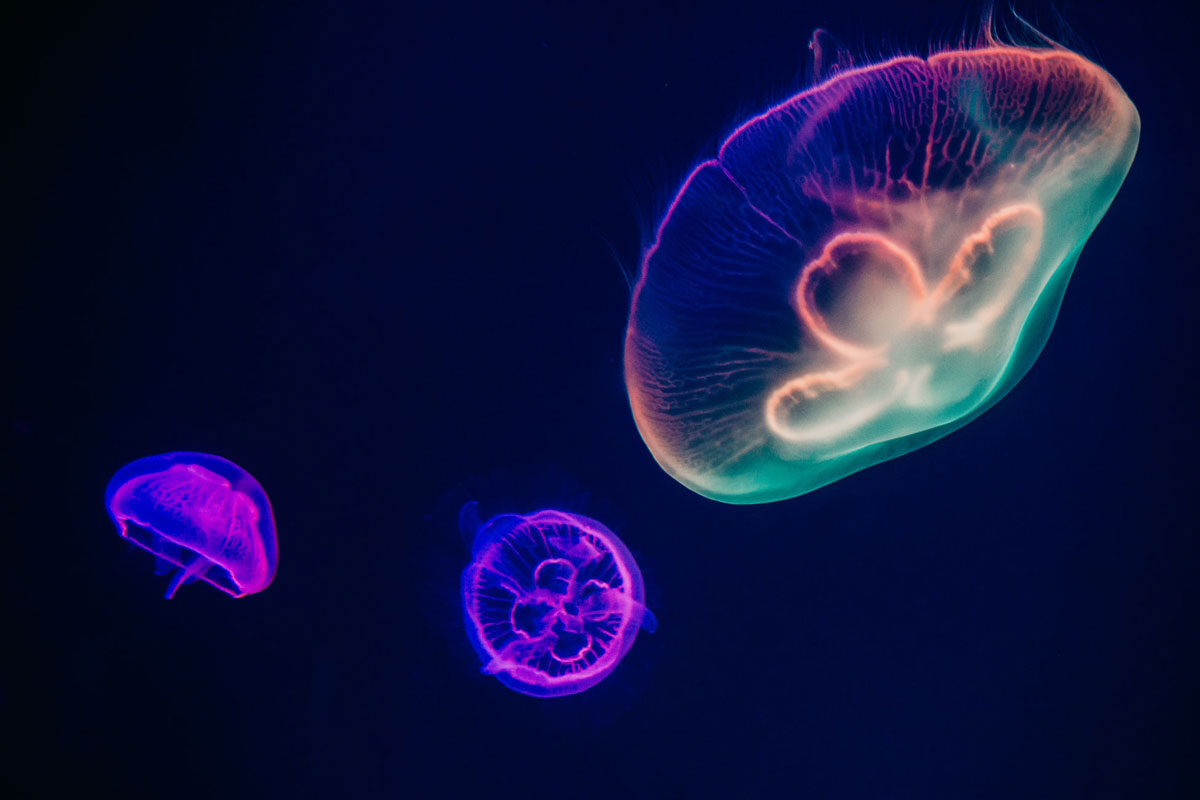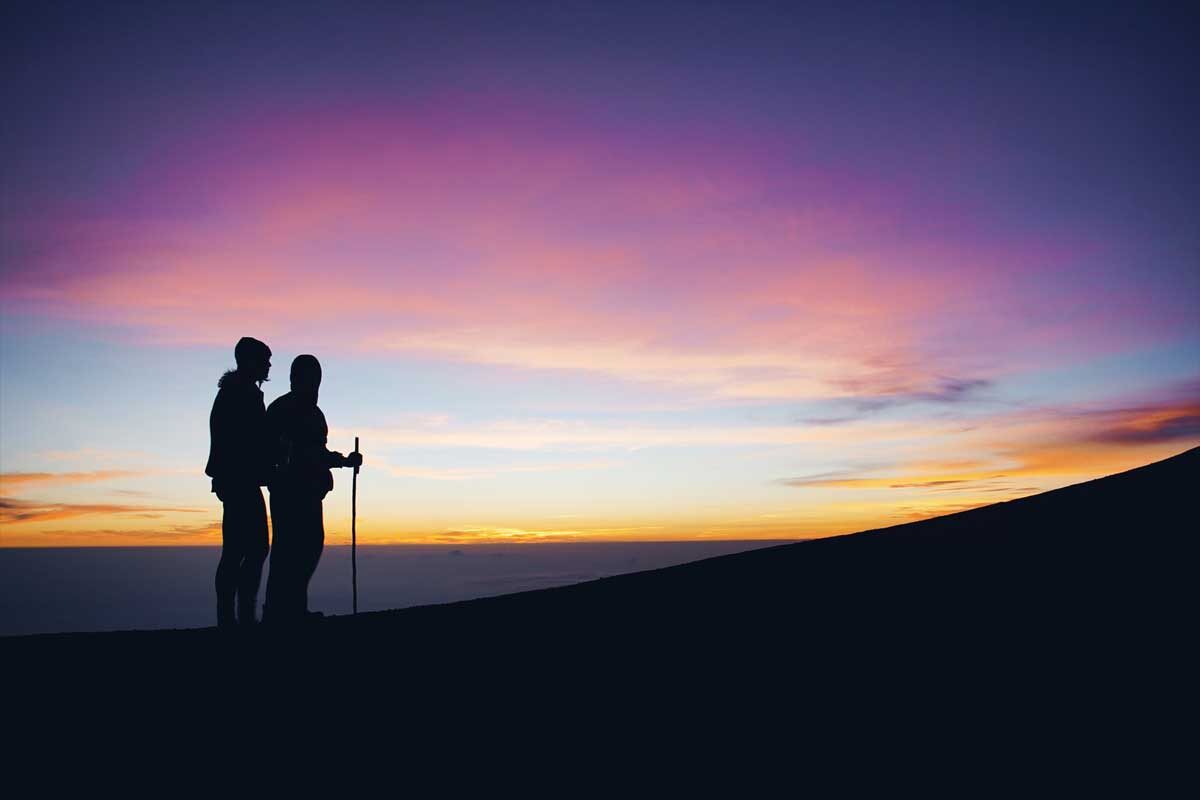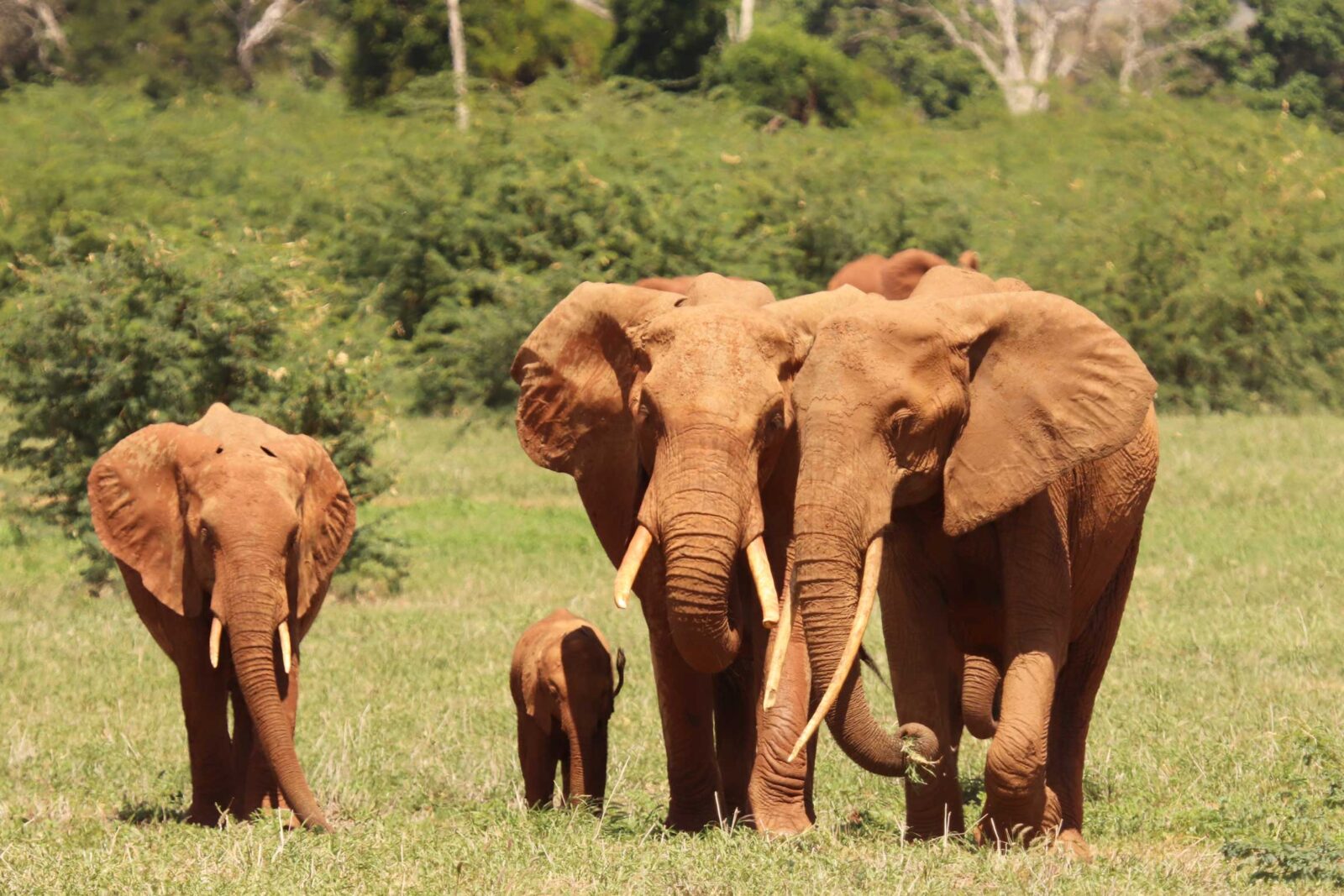
The Great Rift Valley, Tsavo and the Coast: Kenya’s Highlights
Tour Introduction
This intrepid tour takes in some of the irrefutable highlights of wild Kenya, one of the world’s heavyweights in wildlife tourism. Whilst you will visit some much championed regions, the selection of lodges and private conservancies included should ensure that you are not surrounded by excessive amounts of other tourist-laden vehicles at every wildlife sighting, as is now too often the case in some of Kenya’s most prolific spots.
From Nairobi you will first head north into the Aberdare Range, once dubbed ‘Scotland with lions’ by early colonial settlers. The third highest mountain range in Kenya is set apart from the region’s other ecosystems by its open moorlands and ancient lichen-covered forests, offering mystical views of Mount Kenya to the east. Lion and elephant roam a landscape intersected by river valleys and cascading waterfalls. Stay in The Ark, with its superb viewing platforms that directly overlook a watering hole and salt lick. Scores of different animals visit, and if there is something of particular interest at the watering hole in the wee hours of the night, the guide will give your door a knock if you’ve arranged this. Just slip on your dressing gown and flip flops and head out onto the platform so you don’t miss a thing!
From Aberdare National Park, continue west to the Great Rift Valley’s Lake Nakuru, a seasonal resting ground for hundreds of thousands, sometimes in excess of a million, greater and lesser flamingo. The national park doubles up as Kenya’s first and largest rhino sanctuary additionally, making it a superb location for viewing both rhinoceros species. You’ll be staying in Sarova Lion Hill Game Lodge, from where its guides will provide you with exciting game viewing drives around the park. Sarova is known for its first class service and spectacular views of this unique lake.
Next up will be one of the most famous wildlife locations in the world, the Maasai Mara National Reserve. The Maasai Mara covers a small area of the greater Serengeti ecosystem which stretches south into Tanzania. It is of particular importance as a protected reserve because of the annual migration of wildebeest and zebra that pass through, as they travel north from the Serengeti to seek out fresh grazing lands. From Tipilikwani Mara Camp you’ll have the opportunity to head out on multiple game drives, your dedicated guides seeking out the best dramas of the savanna as they unfold. Africa’s big predators, lion, leopard, cheetah, hyena and wild dog keep a watchful eye on the herds of grazers as they pass through.
After experiencing the Maasai Mara, a train journey will take you east to the Tsavo area, after a night’s stop in Nairobi. In Tsavo You’ll be staying in a beautiful lodge in the private Mbulia Conservancy, which sits within Tsavo West National Park. The landscape is semi-arid desert, dotted with inselbergs (isolated rock hills) and rocky escarpments. The uniquely red earth here adds colour to its roaming herds of elephant, all backed by a distant view of Mount Kilimanjaro over Tanzania’s border to the west, an absolutely quintessential African scene.
You’ll conclude your tour with three nights in blissful Indian Ocean style, as you enjoy the comforts of the wonderful Cardamom House, north of Mombasa. A beachside property where you can choose exactly how you wish to see out your holiday, sunbathing, swimming in the pool, snorkelling, or on a boat looking for dolphins – now wouldn’t that cap off your trip nicely?!
Full Itinerary
Met on arrival at Jomo Kenyatta International Airport in Nairobi, and transfer to your hotel.
Staying at Tamarind Tree Nairobi. Includes Breakfast.
After breakfast at your hotel, you'll be driven north to the Aberdare Range. Stop for a relaxing break and lunch at Aberdare Country Club. Afterwards, transfer to The Ark in Aberdare National Park.
Staying at The Ark. Includes All Meals.
Your guide will drive you to Lake Nakuru National Park, famous for its magnificent flocks of flamingo. Being Kenya's first and largest rhino sanctuary, sightings of both black and white rhino are very possible within the park. Check in to Sarova Lion Hill Game Lodge and have lunch with a view. Enjoy an afternoon game drive to explore the edges of this phenomenal lake. Dinner and overnight at the lodge.
Staying at Sarova Lion Hill Game Lodge. Includes All Meals.
Travel south-west overland to the world-renowned Maasai Mara National Reserve, home to the annual mass migration of wildebeest and zebra. Arrive at Tipilikwani Mara Camp, where you'll stay for the next three nights. Relax into your new surroundings and enjoy a first lunch at the camp. In the afternoon, head out with your experienced guide on a game drive to search for the Big Five. Sip on a sundowner after dinner, surrounded by the ethereal sounds of the African bush.
Staying at Tipilikwani Mara Camp. Includes All Meals.
Full day of game viewing in the Maasai Mara National Reserve, with both morning and afternoon game drives.
Staying at Tipilikwani Mara Camp. Includes All Meals.
Full day of game viewing in the Maasai Mara National Reserve, with both morning and afternoon game drives.
Staying at Tipilikwani Mara Camp. Includes All Meals.
After breakfast, say your farewells to the Tipilikwani camp staff and transfer overland back to Nairobi. Check in to the Tamarind Tree Hotel for the night.
Staying at Tamarind Tree Nairobi. Includes Breakfast and Dinner.
Have an early breakfast at the hotel and transfer to Nairobi Train Station. Travel by rail to Voi, in the south-east of the country. Met and transfer to your camp, Kipalo Hills, based in the Mbulia Conservancy inside Tsavo West National Park. Settle into your new base for the next three nights, before taking lunch at the lodge. In the afternoon head out on a first game drive into the legendary Tsavo ecosystem.
Staying at Kipalo Hills. Includes All Meals.
Morning and afternoon game drives, or a full day excursion with a picnic lunch. You will have opportunity to go on game drives at night and even bush walks during the day, within the Mbulia Conservancy boundary.
Staying at Kipalo Hills. Includes All Meals.
Morning and afternoon game drives, or a full day game viewing excursion towards the Taita and Chyulu Hills, accompanied with a picnic lunch.
Staying at Kipalo Hills. Includes All Meals.
Following breakfast and a goodbye to the Kipalo Hills staff, transfer to Voi Station and continue onwards to Mariakani Station, just outside of Mombasa. Met at the station by our representative and transfer by vehicle from Mariakani to your final accommodation, Cardamom House on Kenya's Indian coastline.
Staying at Cardamom House. Includes All Meals.
Full day to spend at your leisure. If of interest, you can enquire as to what guided excursions are being run by the hotel during your visit.
Staying at Cardamom House. Includes All Meals.
Full day to spend at your leisure. Simply rest and relax, make use of the hotel's swimming pool and plentiful lounging areas, or perhaps book a water sports activity like snorkelling, windsurfing or kayaking.
Staying at Cardamom House. Includes All Meals.
Either take the return train journey from Mariakani back to Nairobi, or you may wish to fly back to Nairobi's Wilson Airport from Vipingo Ridge Airport on the coast. Transfer to Jomo Kenyatta International Airport once back in Nairobi, and connect with your onward or return flight.
Includes In-flight Meals.
Tour Accommodation
Overview
Tamarind Tree Nairobi is conveniently located less than a ten minutes’ drive from Wilson Airport, the regional airport of Kenya’s capital. It is a modern, clean hotel with good facilities and dining options. Wilson airport serves the smaller airports and airstrips that are the main access points to national parks and private reserves, as well as safari lodges. Next door to the hotel is Nairobi’s famous Carnivore restaurant.
Swimming Pool
Air Conditioning
Rooms
Facilities
Restaurant, lounge and bar, coffee shop, 20m outdoor swimming pool, adjoining children's pool, fitness centre/gym.
Room types include standard room, superior suite, junior suite, executive suite and family suite. All rooms have a king size bed or twin beds, in-room safe, flat-screen TV, international/USB plugs, rain shower, blackout curtains, air conditioning, work desk and chair, complimentary tea, coffee and water.
Optional Activities
Sheldrick elephant orphanage, Nairobi National Park, Giraffe Centre, Karen Blixen Museum
Overview
Four viewing platforms with brilliant views of the waterhole where elephants and other animals gather. There is also a ground-level viewing hide, of particular convenience to photographers who will want to be getting those eye-level shots. The lodge’s wildlife guide will ‘buzz’ rooms when species of significant interest appear at the waterhole. The beauty here is that you will only need to throw on your robe and slippers and head to the viewing platform to witness the action at a moment’s notice.
Breakfast and dinner are served in the restaurant, whereas lunch is enjoyed at the nearby sister hotel, the Aberdare Country Club, where you can spend the rest of the afternoon enjoying the hotel’s facilities like the swimming pool, or golf and tennis courts, if desired.
Swimming Pool
Air Conditioning
Rooms
Facilities
Restaurant serving breakfast and dinner (lunch is taken at the Aberdare Country Club), souvenir/gift shop, viewing decks, photography hide, small library and bar.
Rooms are all en suite, with six single bedrooms, 37 twin rooms, ten double rooms and seven triple single rooms.
Optional Activities
Solio game reserve, Aberdare Country Club, fishing, climbing, game drives, horse riding
Overview
Wonderfully located on the eastern bank of Lake Nakuru, rooms at Sarova Lion Hill Game Lodge are blessed with a fine aspect in which to absorb the splendid views. Lake Nakuru is a natural history spectacle, with sometimes in excess of a million lesser and greater flamingos gathering to feed in the algae and plankton-rich, alkaline lake.
The park is home to the Lake Nakuru Rhino Sanctuary. Established in 1984, this was one of Africa’s first rhino sanctuaries and was setup in response the devastating decline of rhinos in the wild. Starting with just two rhinos, this has been one of Africa’s big conservation successes and the park is now home to around 120 white rhino and around 30 critically endangered black rhino.
The lodge supports many local initiatives in the area and has been awarded a silver eco-rating in recognition in its innovation and excellence in environmental conservation, responsible resource use and socio-economic investment.
The Tulia wellness spa offers aromatherapy, holistic, Indian and Swedish treatments. There is also a heated outdoor swimming pool in an inviting setting. The lodge has its own vegetable and herb garden which is used by the kitchen team and chefs to complement other locally sourced ingredients, to serve up fine cuisine at the Flamingo Restaurant. Outdoors, a large terrace and bar hosts traditional dance performances each evening, and views of the sunset over the lake can be spectacular.
Swimming Pool
Air Conditioning
Rooms
Facilities
Heated swimming pool, gift shop, wellness spa, kitchen garden, restaurant, outdoor bar and terrace with views,
62 cabins and three suites. All rooms have a patio overlooking either the gardens or the lake itself. There are standard rooms, inter-connecting family rooms, junior suites and one presidential suite.
Suites have a direct-dial telephone and a minibar, whilst all room types have an in-room safe, hairdryer, pillow menu, complimentary toiletries, Wi-Fi, bottles of water, tea and coffee making facilities, and a daily housekeeping service.
Local Wildlife
Greater flamingo, lesser flamingo, great cormorant, African fish eagle, Hildebrandt's spurfowl, broad-billed roller, white-browed coucal, grey woodpecker, northern anteater-chat, brown-crowned tchagra, Narina trogon, greater honeyguide, scaly-throated honeyguide, African firefinch, red-throated wryneck, arrow-marked babbler, great white pelican, African spoonbill, African harrier-hawk, grey-headed gull, Levaillant's cuckoo, green woodhoopoe, black cuckoo-shrike, grey-backed fiscal.
Black rhino, white rhino, Rothschild's giraffe, cape buffalo, vervet monkey, black and white colobus monkey, olive baboon, impala, gazelle, waterbuck, hippo, zebra, spotted hyena, leopard, lion.
Optional Activities
Bush dining, game drives, bird watching, Menengai Crater, Rhino Sanctuary, Makalia Falla, picnic at Baboon Cliff.
Overview
This tented camp, on the Talek River, sits on the boundary of the Maasai Mara National Reserve and provides a wonderfully comfortable and exuberant safari camp experience. The local Maasai community provide talks on their heritage as well as perform traditional dances. East Africa’s ‘Big 5’ are all present in the Maasai Mara, while its black rhinoceros constitute the final remaining native population in Kenya, where their presence is not because of reintroductions.
Staff are recruited from the local area and provide a naturally warm style of hospitality which will greatly enrich your stay in the bush. Fine cuisine is prepared, cooked and served, whilst the guiding service exudes professionalism and experience. You can choose to privately dine out on the veranda, or even under the stars, or eat in a communal setting in the spacious, open-sided dining area.
Looking at the Masai Mara today, with its vast unspoiled plains teaming with wildlife, you’d be forgiven in thinking that the park has been this way for thousands of years. However, the reality is very different. Trophy hunting and farming decimated the park through the late 1800s and 1900s, to the point that there were only nine lions remaining in the park by 1961 (there are now nearly nine hundred).
Wildebeest numbers had also been decimated by disease and hunting. So much so, that the remaining 200,000 or so animals kept mostly to the fertile grasslands of the southern Serengeti, with no real need to look for fresh grazing. The ‘Great Migration’, as we now know it, only started in the 1960s when the wildebeest population boomed to the point where the grasslands of the Serengeti could no longer sustain such a large herd all year long. So, the animals started to head to the grasslands of the Masai Mara each year to sustain their collective insatiable appetite. The migration now numbers up to two million animals and is one of the world’s greatest natural spectacles.
It’s no accident that this recovery in the Mara’s fortunes coincided with the boom of wildlife tourism in the area. The revenue raised through wildlife tourism soon showed the unsustainability of trophy hunting and the was practise was abruptly stopped. Park fees funded an effective conservation and anti-poaching effort which led to dramatic increases in wildlife numbers. Local Maasai landowners soon realised the potential returns from tourism and they moved cattle from their lands to create wildlife conservancies in the areas bordering the park, greatly increasing the size of the protected area.
Tourism and wildlife conservation go hand in hand in the Masai Mara like nowhere else in the world. One simply couldn’t survive without the other. It is heartening to know that your visit here will be directly sustaining one of the world’s greatest wildlife areas for years to come.
Swimming Pool
Air Conditioning
Rooms
Facilities
Open-sided dining and lounge area, swimming pool, charging facilities, Wi-Fi.
All tents have showers and the family tents have stand alone bath tubs additionally.
Local Wildlife
Lion, leopard, cheetah, aardwolf, spotted hyena, bat-eared fox, side-striped jackal, honey badger, banded/slender/dwarf mongoose.
Plains zebra, wildebeest, giraffe, elephant, cape buffalo, hippopotamus, bushbuck, antelope, topi, bushbuck, Thomson's gazelle, Coke's hartebeest, waterbuck, common eland, oribi, Grant's gazelle, klipspringer, impala, Kirk's dik dik.
Pangolin, vervet monkey, olive baboon, red-tailed monkey, warthog, bushbaby, aardvark, African hare, spring hare, crested porcupine, straw-coloured fruit bat.
Optional Activities
Safari game drives, bush breakfast/dinner, picnic lunches, cultural visits, lessons on Maasai culture, cultural displays by Maasai warriors.
Overview
This charismatic lodge is based within the Mbulia Conservancy, which is surrounded by Tsavo West National Park. The 36,000 acres of Mbulia were formerly part of a community-owned ranch. The local community still benefit today however, with part of the income generated from each tourist’s visit going directly to the Secluded Africa Wildlife & Community Trust.
Tsavo is characterised by huge red rocky outcrops, vast steppes and scrubland. The Ngulia and Chyulu Hills rise in the north of the park. On a clear day, From these hills and other vantage points, you can be rewarded with dramatic views of Mount Kilimanjaro, dominating the horizon to the north west of the park, across the border in Tanzania.
Exceptional elephant encounters are possible here due to the close proximity of a waterhole right next to the camp. As well as family groups of elephant, buffalo and occasionally even leopard or wild dog make visits for a drink.
Accommodation options come in the form of safari-style tents, a luxury suite, or a private villa, all of which are spaced generously apart, enforcing that feel of seclusion.
The Mbulia Conservancy was initiated with the local community who wanted to develop a tourism initiative on their otherwise underutilized land. An agreement was struck to lease the land to create a wildlife conservancy to protect the local wildlife whilst creating an income for the community. Kipalo Hills now employs and trains people from the local villages to work in the lodge, as well as 12 game-scouts from the local community to patrol the conservancy. Their efforts continue to make a monumental difference as increasingly more wildlife, including the endangered African Wild Dog, are choosing to call the conservancy their home. Conservation fees from paying guests staying at Kipalo Hills go towards running the conservancy and protecting the wildlife, as well as towards social welfare projects for the Mbulia community.
Swimming Pool
Air Conditioning
Rooms
Facilities
Main communal building with dining/lounge areas and a bar, sun deck with swimming pool. The camp is powered entirely by solar power and Wi-Fi is only available in the main communal building.
There are six traditional safari tents, one suite and one private villa. Traditional safari tents have a double or twin bed set up, with en suite bathroom with a bucket shower, wash basin, toilet, private seating area.
Local Wildlife
Leopard, lion, cheetah, wild dog, spotted hyena, buffalo, black rhino, giraffe, elephant, Grevy's zebra, crocodile, wildebeest, hippo.
Dik-dik, lesser kudu, hirola, common eland, hartebeest, kudu, bushbuck, duiker, gazelle, genet, klipspringer, oryx, waterbuck.
Aardwolf, baboon, mongoose, nocturnal porcupine, warthog, hyrax.
Birds: over 500 species including ostrich, Taita falcon, Taita thrush, northern red-billed hornbill, southern ground hornbill, golden-breasted starling, Fischer's starling, grasshopper buzzard, Pringle's puffback, black-capped social weaver, Taveta golden weaver, black-headed lapwing, Friedmann's lark, singing bush lark, brown-breasted barbet, common whitethroat, quail plover, Tsavo sunbird, Somali bee-eater.
Optional Activities
Game drives in Mbulia Conservancy, as well as Tsavo East and Tsavo West National Parks, full day safaris to Taita and Chyulu Hills, Nocturnal game drives within Mbulia Conservancy only, guided bushwalks, birdwatching, visit the ranger post, picnic breakfast and lunch in the bush.
Overview
Situated on Kuruwitu Beach, about an hour’s drive north of Mombasa, this delightful property is a superb choice for a few days relaxation aside the Indian Ocean, to conclude your safari holiday.
There is a main building, Manda Toto, with a bar, several lounge areas, and a dining area. A nice perk to Cardamom House is that you can choose exactly when and where to eat, as there are no set meal times or menus. The creative dishes have a strong emphasis on freshly caught fish and seafood, whilst you can choose to dine in the main house, by the pool or on your private terrace.
The ten rooms are made up of two penthouses and eight suites. There is a lounge area on a rooftop terrace, on the Tower building, a glorious location from which to enjoy the sun setting over the Indian Ocean, with a cocktail and some delicious finger food. The Hotel has a lovely outdoor swimming pool, sat beside colourful flower-strewn pergolas that invite you to lounge in the dappled shade.
In early 2000s overfishing and unsustainable fishing practices had resulted in declining fish numbers in Kuruwitu, threatening the livelihoods of local fishermen. To resolve this, the community set up the Kuruwitu Conservation & Welfare Association. KCWA engaged with local fishermen on how to improve fishing practices and set up a marine park.
Fish have grown in abundance, size and diversity, as has the biodiversity of the Kuruwitu region, creating numerous jobs and helping the growth of ecotourism. In addition, building on the success of the Kuruwitu locally managed marine areas, 20 other LMMAs have been set up along the Kenyan coast. A contribution of the conservancy fees per booking at Cardamom House goes towards the marine park and helps sustain the amazing underwater wildlife for generations to come.
Swimming Pool
Air Conditioning
Rooms
Facilities
Fire pit with adjacent lounge area, swimming pool with shaded sunbathing areas, a wine cellar. Wi-Fi is available in the public areas and in the suites.
There are three suites in the Tower building, in Villa Shela there are two suites, one suite in Villa Lulu and two penthouse suites in Manda Toto. All suites have a private terrace, air conditioning, king size bed with mosquito net, en suite bathroom, double basin unit, writing desk, safety deposit box, ceiling and floor fans.
Optional Activities
Water sports: Diving, snorkelling, swimming, kayaking, SUP, windsurfing.
Guided excursions include boat trips, snorkelling tours, horseback riding, deep sea fishing, 'reef walk' in the adjacent marine sanctuary, whale and dolphin watching (seasonal).
There is a nearby tennis club and golf course, whilst fitness and yoga classes, and massages are available at the hotel.
Route Map
Departure Dates
Travel Information
Are International Flights Included?
No. Please contact us for a quote if required.
Flight Info:
Fly direct from London Heathrow to Nairobi with British Airways or Kenya Airways.
Best Visited:
June to October
Are you ATOL Registered?
Yes. This means we are legally able to book your international flights in conjunction with your ground arrangements so you can book with us with complete confidence. Read more about our ATOL license here.
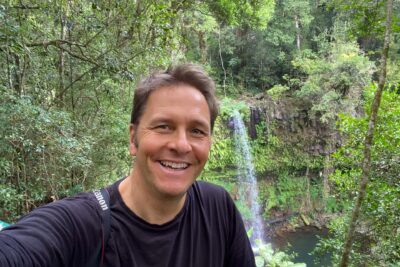
Jonathan Morris
Area Specialist
If you have any questions regarding this Tour, please feel free to contact me on +44 (0)1803 866965
